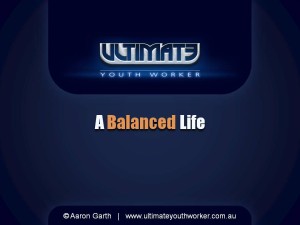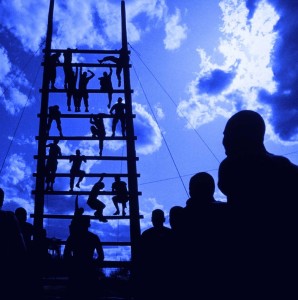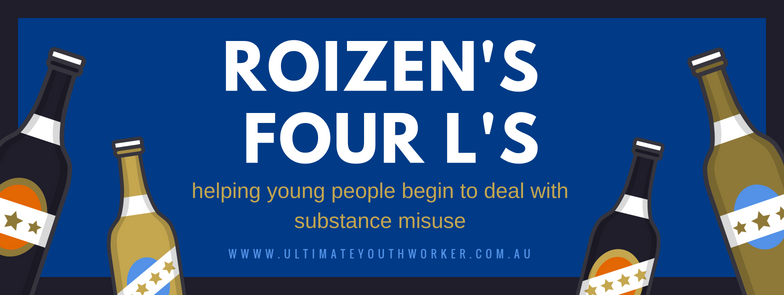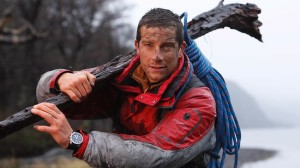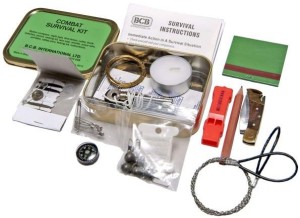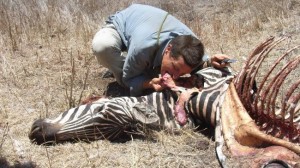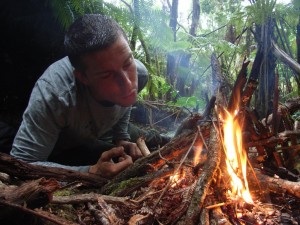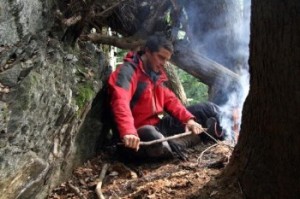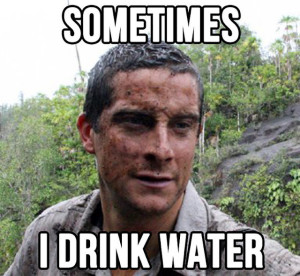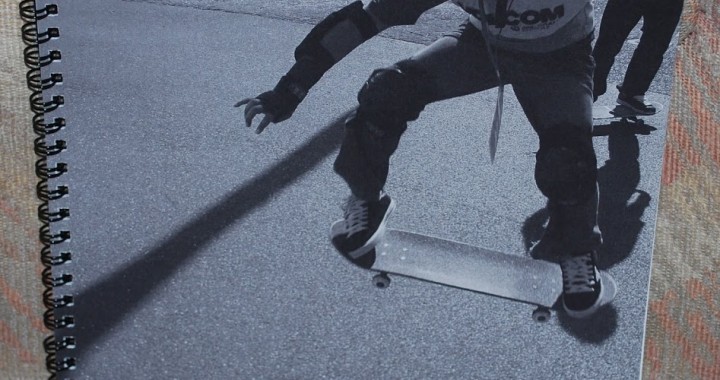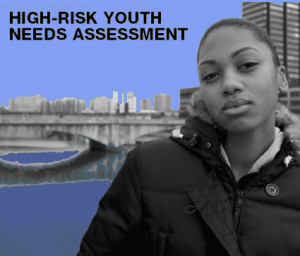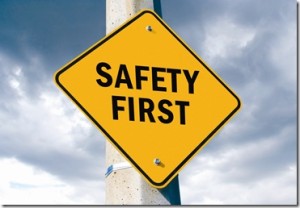Author Archive: Aaron Garth
Become more than you are right now: A youth work specialist
If you haven’t yet, sign up for our newsletter to find out all the goings on at Ultimate Youth Worker. (Sign up here)
You can also leave us a comment below or post a comment on facebook and twitter.
Virtue Ethics and Practical Wisdom.
This week we are learning through video. This is a short clip of Barry Schwartz speaking on Virtue etthics and practical wisdom. Enjoy and discuss.
If you haven’t yet, sign up for our newsletter to find out all the goings on at Ultimate Youth Worker. (Sign up here)
You can also leave us a comment below or post a comment on facebook and twitter.
Roizen’s 4L’s helping young people begin to deal with substance misuse
Roizen’s 4L’s
We all know that substance abuse is on the rise in adolescents the world over. It is often in the top five biggest issues for young people in surveys and is on the agenda in almost every youth service I know. Many of the young people I have worked with have either misused substances themselves or know someone who does. Drugs and alcohol are one of the problems that young people face which youth workers need to have a good understanding about. In coming posts we will speak more about the AOD sector however in this post we will give you a tool to use when one of your young people has more than a passing relationship with substances.
Whether you are a believer in zero tolerance or a staunch observer of harm minimisation, working with young people who use drugs and alcohol excessively can be difficult. We can have many ideas on what to talk to them about or why they are using but if they do not see their use as problematic it is unlikely that they will do anything about it. What we need is a system to help young people see their behaviour as problematic in a way that will not strain our relationship too much.
 Enter Ron Roizen
Enter Ron Roizen
Ron Roizen, an American sociologist, created a useful shorthand system for the harms which may be experienced through a use of drugs. Support workers have been using this system for decades to help young people move from pre-contemplation to contemplation. The system is known as Roizens four L’s. Each word begins with the letter L – ‘Lover’, ‘Liver’, ‘Lifestyle’ and ‘Law’ – stands for a category of harm.
 Lover
Lover
Lover helps us to discuss the problems which have arisen with relationships in a young persons life. These problems may show their head with family and/or friends, boyfriends, girlfriends or even their significant goat. Lover reminds us to probe how substance use has changed their relationships with those who are significant in their lives.
 Liver
Liver
Liver implies all the physical and psychological health problems caused by drug use, such as cirrhosis, depression, anxiety and psychosis. When speaking to young people we use the word LIVER to remind ourselves to use probing questions into the health implications of their substance use.
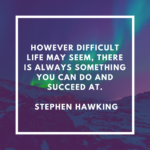 Lifestyle
Lifestyle
Refers to problems of employment, problems with study, financial problems and other problems which have taken place due to their substance use and its change to their social behaviour. Did they formerly play sport on the weekend which now is left behind for a score? Perhaps it is that they are now night owls and miss work for sleep. Use the word LIFESTYLE to remind yourself to ask questions about how their substance use has changed their lifestyle.
 Law
Law
LAW refers to all the legal problems which may result from drug use. Issues with the fuzz, the plod, the cops or judge dread. How has their behaviour brought them into the realm over the law. How much are you carrying of what? What is the sentence for that? I see you were placed in custody last night! LAW reminds us of the legal implications of a young persons substance use.
Using your skills in basic human interaction and relationship building spend time fleshing these out. Ask questions. Probe answers. The purpose of this exercise is not to get the young person to stop using drugs but to recognise that their use has had negative effects on them and their lifestyle. Remember with people slow is fast. If you push too hard too fast you will alienate them and lose your relational trump cards.
Use Roizen’s 4L’s to get them thinking. We will deal with what to do next…next week.
If you haven’t yet, sign up for our newsletter to hear all the goings on at Ultimate Youth Worker.
[button_1 text=”Subscribe” text_size=”32″ text_color=”#ffffff” text_bold=”Y” text_letter_spacing=”0″ subtext_panel=”N” text_shadow_panel=”Y” text_shadow_vertical=”1″ text_shadow_horizontal=”0″ text_shadow_color=”#ffffff” text_shadow_blur=”0″ styling_width=”40″ styling_height=”30″ styling_border_color=”#9e5424″ styling_border_size=”1″ styling_border_radius=”6″ styling_border_opacity=”100″ styling_gradient=”Y” styling_gradient_start_color=”#1e305e” styling_gradient_end_color=”#1e305e” drop_shadow_panel=”Y” drop_shadow_vertical=”1″ drop_shadow_horizontal=”0″ drop_shadow_blur=”1″ drop_shadow_spread=”0″ drop_shadow_color=”#000000″ drop_shadow_opacity=”50″ inset_shadow_panel=”Y” inset_shadow_vertical=”0″ inset_shadow_horizontal=”0″ inset_shadow_blur=”0″ inset_shadow_spread=”1″ inset_shadow_color=”#1e305e” inset_shadow_opacity=”50″ align=”center” href=”http://eepurl.com/llk7r” new_window=”Y”/]
You can also leave us a comment below or post a comment on facebook and twitter.
Do you have a code of ethics???
How youth worker’s can get more things done!
First, clear you mind and put it on paper.
Second, clarify your commitment and what you really need to do.
Third, once you have set a goal set reminders in a place you will be reminded.
What will youth work look like in 2013? The finale.
Its been a month and a half in the making but we are finally there. The finale of our series looking at the next twelve months or more in youth work. We have had blogger’s and professor’s of youth work from one end of the globe to the other. We heard from Shae and Stephen from youthworkinit.com, Sam Ross from teenagewhisperer.com, Professor Dana Fusco from CUNY and Professor Howard Sercombe from the University of Strathclyde. Each had their own perspectives on the current and future trends in youth work. Each brought a different perspective on what forces were pushing and pulling youth work. Each one had a particular pearl of wisdom for us. Today’s post is a wrap up of these posts with a focus on the similarities between them all. We will also give our view of the year ahead.
Wrap up
Our amazing guests spoke about a number of areas in which youth work will develop over the coming year. They spoke about youth worker education, technology, the economic situation and the need to be holistic in our practice.
Youth Worker Education
Dana Fusco spoke of the changes developing in youth work education world wide. In the US there has been a 900% increase over the past four years in youth development courses offered by higher education facilities. In the UK and Australia These courses are in decline. Dana laments the decline in youth work education, “In 2013, it is hard to predict where those who want to study youth work and youth studies in these countries will go. If they go into existing, related disciplines, e.g., social work, then youth work will too likely become case management; if they go into education, then youth work will become para-teaching“.
Howard Sercombe also laments the current education setting for youth worker’s. From developing a cozy little home for ourselves throughout the sixties and seventies to becoming a mainstream course in the nineties we sold our soul to the devil of higher education. Like all good corporate conglomerates the universities shafted us. Taking a subject area steeped in the tradition of practice wisdom and narrative and turning it into a McDonaldised cookie-cutter model of research-based best-practice. However true to our history we steered away from research which ultimately is leading to our higher education downfall. Conversely, Howard states, “For the first time, I can run a course for youth workers using a selection of books on youth work written by youth workers“.
Technology
In her response to the question Sam Ross states that she always thinks of the new technology on the horizon. Sam speaks of the massive uptake of mobile and smart phones by young people. She shows the statistics of American young people’s use of their phone and how much of their attention it takes…Are you on social networking sites? They are! Sam speaks of the need for youth workers to use this love of mobile technology to keep the attention of young people focused on what we want them focused on.
However Sam also implores us, “So while 2013 may be technologically more advanced and our ways of connecting and engaging may expand we shouldn’t forget that good youth work was the same in the past as it is today and will be tomorrow“. Its all about the relationship.
The economic situation
There is not a person alive today that can’t attest to the effects of the global financial crisis on the hip pocket. Everything seems to cost more today than it did yesterday. Even in countries like Australia which have had some reprieve from the tidal forces of the economic collapse the financial situation is difficult. As Howard put it “Austerity measures have required significant cutbacks in local funding and this has carried through, often disproportionately, to youth work services“. But we are not the only ones feeling the pinch. Our young people are finding employment harder to gain, University fees have shot through the roof and the general cost of business has increased significantly.
For youth workers this means difficulties at every turn. Shae and Stephen state, “Over the last 25 years, the cost of university education in the US has more than tripled, which has resulted in 1 in 11 people defaulting on their student loan repayments within two years of making payments“. Many of our guests stated that this cost was prohibitive and that if you are one of those who are entering a university to study youth work then you are likely to pay through the nose and then struggle to pay it back.
If you rely on government funding or philanthropic support to run your organisation you may be short on funds for a while. Many governments are finding their budgets significantly in the red. Many philanthropic organisations have seen their investments dip over the past few years as well and are giving out less to allow for their continuation. Its not happening everywhere yet but as Howard said, “2013 may well be the year when the expected decimation actually happens“.
The need to be holistic in our practice.
Gone are the days where youth work happens in a silo. On any given day we are expected to hold a number of roles. Sam points out that our ability to build relationships with young people is core to our work and that this foundation is what we build on in our context. Shae and Stephen point out that young people do not live in silos but have lives with intersecting and overlapping parts. Work on one without the other areas being addressed is ineffective.
Dana states, “In the United States, youth work is not a unified or singular practice; rather, it has been described, and still is, a family of practices“. Its not just the states, its world wide. We work from the same base but in different contexts. Our young people need us to have an understanding of more than how to run a good game. As copious as the needs of our young people are, the knowledge of a youth worker must equal… at least enough to refer to other professionals.
What will 2013 look like???
At Ultimate Youth Worker we have loved the guest posts over the last month and a half and have been pouring over them and a bunch of other research and have come to many of the same conclusions. Technology is going to be more important this year than ever before. 12 months on from the death of Steve jobs saw the smart phone war at its highest. Exponential growth in mobile, web and personal technology has meant that the ability to communicate or gain information has never been more accessible. Youth workers need to become more tech savvy just to survive. New web applications, social media and even the ubiquitous email are more important than ever to our relationship building. As youth workers we believe there will be a shift to online training, both formal and informal. Blogs, webinars, podcasts, university course and professional development groups are all starting to toy with developing a solid presence on the web. With the hardware never more than arms length from most young people and youth workers we need to be there.
Youth work education will need to adapt. Aside from becoming more tech enabled we need to gain more breadth and more depth in our education. Young people are changing so fast that we need to keep up with the trends. We hang our shingle on our ability to develop relationships with young people. Good. But we need to develop this skill set. We are a relatively emergent human services field and as such need to develop our purpose, values and critical approach. This is depth. We also need to gain an understanding of where we fit in the multidisciplinary field that young people now frequent. We need an understanding of who and what our colleagues in other field bring to the table. We need to understand their language, their approach and their skill sets. It is the only way we will be able to speak into their work and intervene for our young peoples best.
Money has never been more important and less relevant. The affect of the financial crisis is all around us and will continue to mess with us for years to come in ways we can’t even imagine yet. IT DOESN’T MATTER. The most effective tools in our toolkit are FREE or really cheap. Building relationships takes time. A facebook page can be accessed by free wi-fi at McDonald’s. A mobile phone plan is cheaper than ever. The tools to build relationships are time, energy and interest. Most youth workers have that in trumps. But that means we need to have them around. Youth workers need to feed their families too. With lay-offs happening throughout the sector worldwide there is fear of being cut. Like Howard says, its happened before. The cycle will return. Be the best you can be with what you’ve got and you will be one of the last to get chopped.
Be more!!! Be holistic. What do you do when you have that relationship? We believe youth workers need to see young people as whole people in their context. We need a biopsychoscialspiritual focus. We need to understand the person, their context and their pathways out of their situation. We need to support our young people in every way we can. We also need to look after ourselves. As the stress builds and we are asked to become more and do more we need to have the reserves to keep going.
We also agree with Dana and Howard, Now is the time for an international presence developing the practice of youth work. We are seeing great international youth work research, texts, blogs, conferences etc coming to the fore. We need to build on this.
2013 holds possibilities and risks. We have tried to play it safe for the last decade or more and have seen the rug being pulled out from under us. No more politically light weight youth work. We must band together and do it differently or we will see the death knell of what we hold dear… relationally based critical youth work.
Survival plan for the stressed youth worker.
Food, Fire, Shelter and Water
Food
In the wilderness that is youth work our food is usually the “food for thought”. We need to fill our minds with knowledge…food for thought. Like real food we can go a substantial period of time without it, but it does provide us with sustenance for the journey. Read a book, a blog or even a journal. Do a course, attend a seminar or a webinar. If all else fails have a coffee and a chat with a bunch of colleagues about a topic that has some meat.
Fire
Shelter
Water
Remember: Prior Preparation Prevents Poor Performance.
If you haven’t yet, sign up for our newsletter to find out all the goings on at Ultimate Youth Worker. (Sign up here)
You can sign up to have our blog posts sent straight to your email by adding your email to the subscribe button on your right, or click here.
You can also leave us a comment below or post a comment on facebook and twitter.
What will youth work look like in 2013?
It is with great pleasure and a sad heart that we come to our final guest post in this series. We have heard from a number of truly inspirational and well qualified youth work professionals as to what they believe youth work will look like in 2013. Over the last three weeks we have had Shae and Stephen from youthworkinit.com, Professor Dana Fusco of CUNY and author of “Advancing Youth Work: current trends, critical questions” and fellow blogger and youth work professional Sam Ross the teenage whisperer. This week we have the distinct pleasure to hear from Professor Howard Sercombe of the University of Strathclyde in Glasgow, Scotland.
Howard has researched extensively in the area of youth studies, including studies of the future of youth, young people and public space, and community development with young people. He is interested in how we think about young people, and is currently working with colleagues from neurophysiology and developmental psychology on the implications of the brain architecture research on our understanding of young people. Professor Sercombe has had a major role in the development of youth work as a profession. His scholarship around this area includes writing the Australian Code of Ethics for Youth Work which has been adopted or adapted in three Australian States and the Australian Capital Territory and is under consideration nationally. He also wrote the Code of Ethics for the profession in Scotland. He has lectured extensively across the UK, Australia, New Zealand and Zambia on professional ethics and professionalisation, and his book Youth Work Ethics (Sage, 2010) is a milestone in the field. He is currently developing approaches to research methodology that take seriously the ethical commitment to justice and development.
So Howard what’s your take on the future of youth work?
Realities, as always, are contradictory. Mixed. From the perspective of the UK, things look grim. The fiscal crisis has hit the traditional funding sources of youth work hard. For the last fifty years, local government has had a statutory responsibility to make provision for youth work, though local authorities have had a lot of latitude about how, and to some extent if, they carry this out. Austerity measures have required significant cutbacks in local funding and this has carried through, often disproportionately, to youth work services.
But this picture is mixed. Some authorities have actually increased funding to youth work, in recognition of the impact of the recession on young people. Others have cut provision completely. As a generalisation, however, cutbacks have been widespread and often deep. In Scotland, where I live, cutbacks have been worrying but not catastrophic, at least not everywhere. 2013 may well be the year when the expected decimation actually happens. The real concern is that this fiscal crisis is not a temporary adjustment, and future cutbacks look like coming on top of the existing ones. Even when the recession is over, we face the fiscal time bomb of an ageing population. Some are proclaiming the death of youth work as we know it in the UK.
Some of us have been here before, however. Political economists in the 1970s talked about the contradiction between accumulation and legitimation: the need for the State to continue to guarantee profit and private accumulation, while reassuring the general population that the system was still working in their interests. It is typical in the early phase of a fiscal crisis for the State to pull back from areas of expenditure it sees as optional, in order to support capital in its restructuring and rebalancing. Youth work is politically lightweight, so we tend to fall into that category. Then, two years in, the entirely predictable spectre of youth unemployment starts to raise its head. That is followed by a crime wave, or a moral panic about one, and there is a panic reinvestment in youth work to deal with it. I’m expecting the same pattern. The London riots came too early in the process to have that effect, and was able to be dismissed by the political class in terms of a cultural moral deficit and individual criminality. A repeat may not be as easily dismissed.
But all recessions are different, and this one different to most. Most come on the back of an economic boom, leaving the State with at least some financial capacity to manage the recession. The need to bail out the banks right at the beginning of the crisis meant that affected governments hit the recession already broke. That means that the capacity of the State to reinvest is limited. Youth work will continue to be done, but we might see a significant return to voluntary labour to get the hours in. In fact we already are!
Youth work education is in a difficult place as well. Youth work found a place in professional education in the universities from the 1960s, with real growth in the 80s and 90s. In the last decade, however, the situation has shifted. The focus on research has diminished the respect for practice wisdom in professional education, and youth work (along with other professional areas like teaching) has not kept up with the research agenda. Corporatisation in the university sector has meant more aggressive pursuit of objectives that promote the university as a corporation rather than the objectives of public service: and that means either high status or high earning activities. Youth work is not a natural contender for either. The poorly thought out introduction of fees in England has meant that training for low-earning professions like youth work are charged at the same rate as high earning professions like law, with a significant impact on demand. The number of universities who have decided to close youth work courses is still a trickle rather than a flood, but some of those courses (including my own) were strategic and long-standing.
But that isn’t the whole story.
Beyond the question of funding and institutional support, there is a growing level of maturity in the youth work profession in the current environment, and a clearer assertion of identity. Paradoxically, even while the funding base contracts, for example, the Scottish Government continues to insist that community learning and development, which embraces youth work, sits at the centre of its anti-poverty and inclusion strategies. The House of Commons Education Committee inquiry into youth services also provided a ringing endorsement of youth work, though noted the lack of a credible evidence base for its effectiveness. The Irish and South African government has a very active division working on the professionalisation of youth work, government does too. Several governments have established youth work in law, with more heading in that direction.
The consolidation of youth work practice through codes of ethics and other core constitutive documents has been progressing across the globe in the last decade. Professional organisations for youth workers are springing up everywhere. Globalisation has meant an international community of youth workers, with more international conferences, policy conversations, research and collaboration. There are more books published on youth work, by major commercial publishers, than ever before. Routledge has just commissioned a new series of books on youth work practice. Sage has taken over the locally-published Learning Matters series. For the first time, I can run a course for youth workers using a selection of books on youth work written by youth workers. This is mirrored in journal and on-line publication as well. Youth work is moving beyond the parochial, and is recognising its common core beyond local expressions of it. It is becoming an international profession.
And there is a bigger picture. The modern category of youth is an artefact of modernisation itself. At other times and in other places, young people were much more integrated intergenerationally, and had a clear role. Modern industry required fewer workers, and more educated, literate and disciplined workers. What happened was the quarantining of people by age into educational institutions, their isolation from the relations of production and from contact with adult social institutions and the subsequent emergence of a (now global) youth culture. This creates a youth population which is significantly, but incompletely contained by the school and other educational institutions. There are also key developmental processes around people becoming autonomous and self-directed which total institutions like the school are not good at facilitating. Youth work exists in all modern societies, under whatever guise and however resourced, because it is socially necessary. It emerged during the Industrial Revolution, and has a continuous presence ever since.
The industrialisation and modernisation process is spreading apace throughout the world: particularly in the new economic powerhouses: the ‘BRICS’ countries (Brazil, Russia, India, China, South Africa). All of them have huge, underemployed youth populations, and are very aware of the political time bomb that involves. In the next decade, all of them will need to make decisions about youth policy, and divert resources towards young people. How youth work positions itself within that process remains to be seen.

Professor Sercombe is an experienced youth work practitioner, trainer, consultant, analyst, media commentator and researcher in the youth studies area. He has primary experience in street-level youth work with homeless and street-present young people as well as a developed academic profile with expertise ranging from social policy analysis to adolescent development to professional ethics. He has worked in urban settings as well as remote outback towns, with Aboriginal and mainstream young people, and across a range of methodologies.
Notwithstanding his current position in the university, Howard sees himself as first and foremost a youth worker, as he has for the last thirty years. His current work is focuses on how youth workers can understand their role and their work, how conceptions of young people shape their practice, on the peculiar ethics of youth work as a profession, and how truth is created and translated between policy, research and practice. He is also working on the implications of the adolescent brain research for our understanding of young people and the practice of youth work. He rides a Yamaha 1200 VMax motorcycle with a sidecar, is married to broadcaster Helen Wolfenden, and has three sons.
What’s left in your top draw while your on Christmas holidays???
-
Assess risk
-
Write a list of your young people and use the basic traffic light system to rate how at risk you think they are (GREEN = No Risk, YELLOW = Some Risk, RED = High Risk). If your not sure about a case chat with your colleagues.
-
Impliment a safety plan
-
For those who are assessed as YELLOW give them a couple of names, numbers or online supports they could contact eg. lifeline, kids help line or counselling online (You will need to develop a list of contacts in your area that meet this criteria)
-
If you assess a young person as RED you could do the same as with a YELLOW, however you also need to up the ante. You need to make sure that you have a conversation with the young person stating your concern. Ask them to make a list of five people they could speak with or go to if there was an issue that arose while you were away. Ask to refer them to a specialist organisation such as a mental health, drug and alcohol rehab or family violence service if you believe the risk to warrant ongoing supervision. Take them to their General Practitioner and discuss the options with them. If necesary you may even make a statutory report. Make sure you document all the steps you have made as to cover your backside if anything goes wrong… because even the best laid plans can go awry.
Merry Christmas and enjoy some family time.
If you haven’t yet, sign up for our newsletter to find out all the goings on at Ultimate Youth Worker. (Sign up here)
You can sign up to have our blog posts sent straight to your email by adding your email to the subscribe button on your right, or click here.


